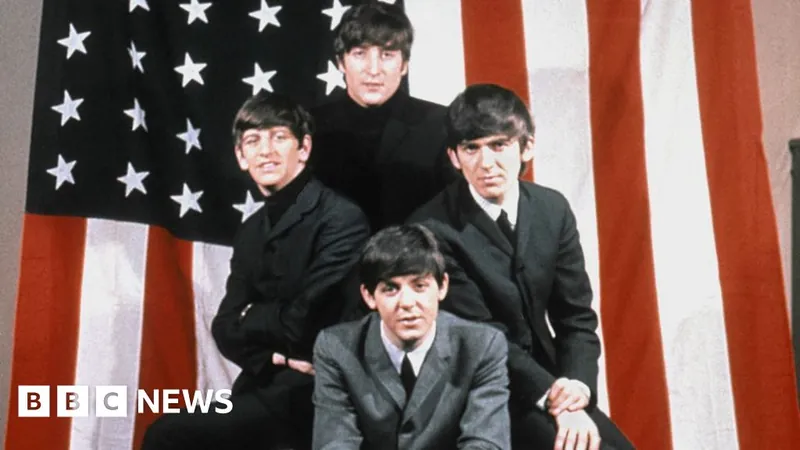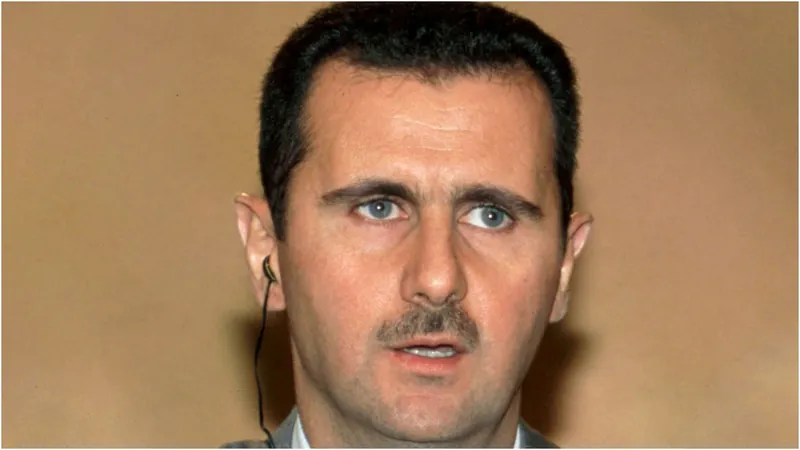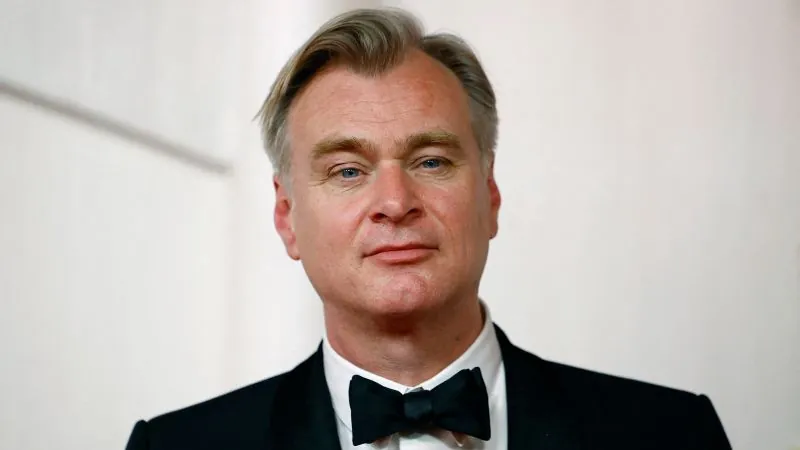
Did JFK's Assassination Propel The Beatles to American Stardom?
2024-11-30
Author: Jessica Wong
A Nation in Mourning
On February 7, 1964, The Beatles arrived at John F. Kennedy International Airport—named after the very president whose assassination shocked the nation just 70 days earlier. The emotional impact of JFK's murder on November 22, 1963, resonated powerfully throughout American society. Dr. Patrick Andelic, an American History expert at Northumbria University, notes that Kennedy, the first president to fully harness television’s power, embodied youth and brilliance, qualities that endeared him to the American public.
“The way news was consumed was changing dramatically,” Dr. Andelic explains. The publicity surrounding Kennedy’s death was magnified by television, intensifying the trauma felt across the country.
The Beatles’ Rise
In Britain, The Beatles—Paul McCartney, John Lennon, George Harrison, and Ringo Starr—had already carved out a niche for themselves. They've enjoyed immense popularity following their landmark appearances in 1962 and 1963, including their show-stopping performance during the Royal Variety Performance in 1963, which catapulted them to fame.
With an unmatched appeal, The Beatles embodied a spirit of joy and playfulness, which resonated particularly in a country reeling from grief. As Dr. Andelic points out, they represented a light-heartedness that Americans were anxious to embrace.
Transatlantic Barriers and Breakthroughs
However, it is vital to recognize that many British acts had struggled to achieve similar acclaim in America. Artists like Cliff Richard and Lonnie Donegan had seen limited success, and record labels like Capitol were hesitant to invest in new British talent due to previously disappointing figures.
Capitol Records initially resisted releasing The Beatles' single "I Want to Hold Your Hand," but after persistent lobbying from the band's manager, Brian Epstein, the single hit stores on December 26, 1963. Its tremendous success laid the groundwork for their upcoming American invasion.
The Beatles' arrival in America drew throngs of fans, but much of their breakthrough was solidified during their iconic appearances on "The Ed Sullivan Show" on February 9, 1964. More than 70 million people watched their first performance, sparking what became known as "Beatlemania." Here, the band solidified their place in American culture, capturing hearts and minds.
The JFK Connection: A Simpler Narrative?
While there is a compelling discussion about whether the national sentiment in the wake of JFK's assassination aided The Beatles’ success, some experts caution against oversimplification. Dr. Holly Tessler from the University of Liverpool argues that the momentum The Beatles had gained prior was already significant. Their manager had secured their spot on "The Ed Sullivan Show" well before the assassination, indicating that many factors contributed to their rise.
While America indeed seemed to seek a distraction and a source of joy in a time of sadness, the alignment of The Beatles' arrival and the fandom that followed was perhaps less about JFK’s demise and more about the band’s undeniable talent and charisma.
Conclusion
Ultimately, the overlapping timelines of JFK's assassination and The Beatles' American debut are fascinating, but the true story lies in the band's exceptional artistry, timing, and their incredible ability to resonate with the American youth. As the world reflects on these historical moments, one cannot help but marvel at how The Beatles' music became a beacon of hope and joy during one of America's most challenging times.
"Beatles '64" is available for streaming on Disney+, and continues to explore the band's historical impact during a pivotal moment in American culture.


 Brasil (PT)
Brasil (PT)
 Canada (EN)
Canada (EN)
 Chile (ES)
Chile (ES)
 España (ES)
España (ES)
 France (FR)
France (FR)
 Hong Kong (EN)
Hong Kong (EN)
 Italia (IT)
Italia (IT)
 日本 (JA)
日本 (JA)
 Magyarország (HU)
Magyarország (HU)
 Norge (NO)
Norge (NO)
 Polska (PL)
Polska (PL)
 Schweiz (DE)
Schweiz (DE)
 Singapore (EN)
Singapore (EN)
 Sverige (SV)
Sverige (SV)
 Suomi (FI)
Suomi (FI)
 Türkiye (TR)
Türkiye (TR)